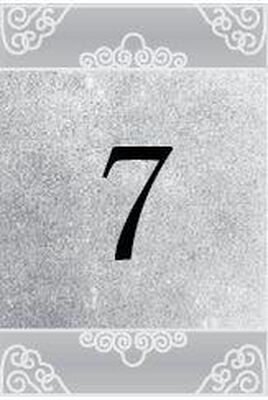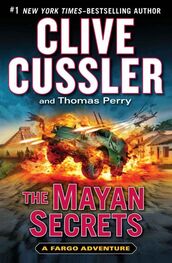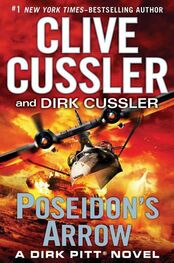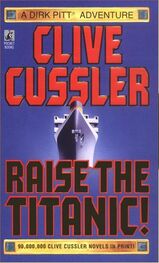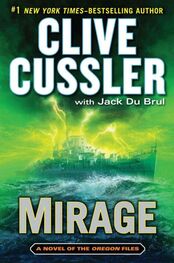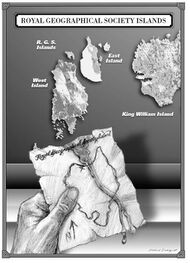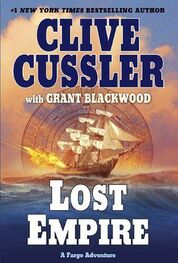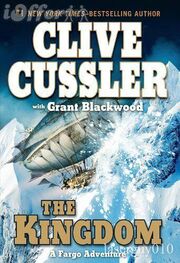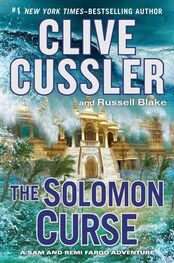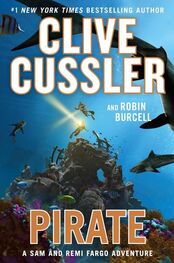Remi said, “You think that Attila’s men came down here and took over an earlier burial?”
“Exactly,” said Albrecht. “We think they found a tunnel, or even a district of the catacomb, that was old enough so nobody ever visited it anymore. Then they probably removed a sealing stone and whatever human remains were behind it. Next they did what some Roman families did—dug much deeper and wider into the stone to make a chamber. They would have made a very small, narrow opening so the tomb looked like the thousands around it. But if the treasure is anything like what we’ve read, the chamber would be much larger than any of the crypts we’ve seen so far.”
“We’ve got to think more about recognizing it,” said Remi. “Is there a family symbol, or a pun on Attila’s name, or a nickname?”
“Even the name itself is a controversy,” said Albrecht. “Some people think Attila is derived from Gothic and meant ‘little father,’ atil meaning ‘father’ and la being a diminutive. The idea is that the Huns were Asiatic and a bit smaller than the Gothic peoples of the future Germany. We also have Priscus’s account, which says Attila was on the short side.”
“Do you accept that?” asked Tibor.
“No. I think it contradicts much of what we know about him. He was a charismatic leader and an absolute ruler—a tyrant, if you will—and a ruthless warrior. At times he pursued strategies that would preserve his armies, but at other times, if it suited his purpose, he hurled his cavalry at fortified positions and accepted huge casualties as the price of victory. He wasn’t the sort of person who is called ‘little father,’ and certainly not the sort who would use that name.”
“So what is your favorite theory?”
“I think that the Hunnic language was closest to that of the Danube Bulgarians, a more recently extinct Turkic language. In Danube Bulgarian, attila means, literally, ‘great ocean’ or ‘universal ruler.’ It fits the role of a king of the Huns, whose job was to bring victory, and therefore prosperity, to the people. It also has no hint of an origin in a distantly related language or a Western point of view.”
The group walked to the first three galleries that were candidates for Attila’s grave. They had all been dug and filled before the year 400. There were carved inscriptions, but none that contained all three necessary elements—the right names of consuls for the year 453, the age forty-seven, and a date of death during the first three or four months of the year.
Captain Boiardi asked, “Why do we assume Attila would tell the truth about anything? Why not put a fake name, year, and day?”
Albrecht said, “Because it doesn’t fit with what we think his purpose was. We think he wanted the tomb to be possible for the right person to find—one with determination and cunning and persistence. We think he wanted the wealth he buried here and elsewhere to be used by a future leader of the Huns to rule the world.”
They went to the fourth district on Albrecht and Selma’s list, a place of intersecting galleries like the streets of an underground city. All turns were right angles at the ends of blocks. The explorers read inscriptions and took photographs, as they had for many hours, and then, without any audible surprise, came Remi’s voice out of the near dark. “I think we’ve found him.”
Albrecht stopped. “What?” He pivoted to face her.
Remi was standing beside a space where there were several openings covered with seal stones. She pointed at one and repeated, “I think this is Attila.”
Albrecht moved closer to the big stone she was examining. His single headlight added to hers and lit it brighter. The others gathered around. Albrecht read aloud to them. “‘Fidelis Miles,’ meaning ‘Loyal Warrior,’” he said. “‘Obit die annus Flavius Opilio et Iohannes Vincomalus vicesimo quinto Ianuarii. XLVII.’” He laughed loudly and put his arm around Remi. “I think you’re right. I think that behind this stone is the man we’re searching for.”
There was a general round of handshaking, backslapping, and hugging. Sam said, “Let’s all stand back a little so the seal can be photographed. From this moment on, everything gets documented, measured, and photographed as it is before it gets touched. Albrecht will be in charge.”
The next two hours were spent on documenting the seal stone and removing it successfully. In the carved shelf space was the skeleton of a Hun warrior of the fifth century, much like the ones Albrecht had found in the field in Szeged, Hungary, early in the summer. “Presumably this man is the loyal soldier.” The man, who was now a skeleton, wore leather pants and a tunic. He also carried a dagger and a long, straight sword.
Sam and Albrecht placed a board under the skeleton and the textiles and weapons, then carefully slid it outward so it could be placed in a rigid airtight plastic container like a flat coffin that was held by Tibor and János. They moved it out of the way.
Now Albrecht and Sam began to examine the back wall of the man’s narrow berth carved into the rock. Sam took out his pocketknife. “Can I test it?”
“By all means,” Albrecht said. “I think it should be a false wall made of plaster.”
Sam prodded and scraped at the wall for a few seconds and then brought out a chunk about an inch thick. “It’s a layer of plaster that hides a second stone.”
“Let’s photograph it before we remove it.” Sam and Albrecht stepped back while Remi photographed the plaster. Then they carefully removed pieces, examining them for paint or scratches.
Albrecht leaned into the opening and stared at the piece of tufa fitted into the back beyond the plaster. “It’s a second seal stone. Oh, yes. This is it!” he said. “‘ Sepulcrum Summi Regis.’ The Tomb of the High King. ‘Magnus Oceanus.’ The Great Ocean. ‘Rex Hunnorum.’ Ruler of the Huns.”
The others applauded, probably the loudest sound heard in this spot in over a thousand years. As it died down and stopped, Sam leaned close to Captain Boiardi. “Was that an echo?”
Boiardi listened for a few seconds, then nodded. “Let’s go see.” He turned off his headlamp.
The two stepped away from the side of the tomb and went back the way they had come, their flashlights turned off. As they quietly walked back, from time to time one of them would stop and they would wait and listen for a few seconds, then continue. As they came to the second turning, there was a larger opening that had been dug for a family crypt. Sam and Boiardi made the turn, Boiardi flicking on his light to see where they were.
Caught in the light were four men who leapt out of the blind corner and grappled with them, trying to overpower them and bring them to the floor of the crypt. Sam, who had been training in judo for most of his life, put the first man down in his initial moment of surprise and delivered a debilitating punch to his chest. The second man had thrown himself on Sam’s back and clung to it. Sam ran hard at the wall, pivoted and hurled himself into it. The man slumped down the wall to the floor.
Captain Boiardi was a police officer trained in hand-to-hand combat and a tall man who was stronger than either of his attackers. He put the first one down with combination punches to the jaw and belly, then put the second out with a choke hold.
As Sam squatted to pick up the flashlight Boiardi had dropped, he saw that two women were crouching in a shadowy corner of the crypt.
Boiardi shouted something in Italian and they looked frightened. Both held their hands up. “We don’t understand you.”
“Don’t shoot just yet,” said Sam. “I know who they are.”
Читать дальше